And speaking of that section...
I would just like to make it clear to anyone reading who may be unintentionally offended by the inclusion of this next album (COMUS, I'm looking at YOU!) or indeed any album, that this is not a "dumping ground" for stuff that didn't make the cut or anything. No album featured here deserves my attention any more or less than more, shall we say, standard prog albums of that year, nor will they get any less. But this is where I feature albums by artists which are outside of what I would consider the mainstream of prog, the ones who were doing things differently - whether they did them well or not is kind of immaterial - those who marched to their own drum and believed that even as ground-breaking as some of the new progressive rock was, they could break even newer ground. This they usually did with larger and heavier equipment, in different ways, putting their own unique slant on their music.
And they couldn't do that where everyone else was working, so they jumped
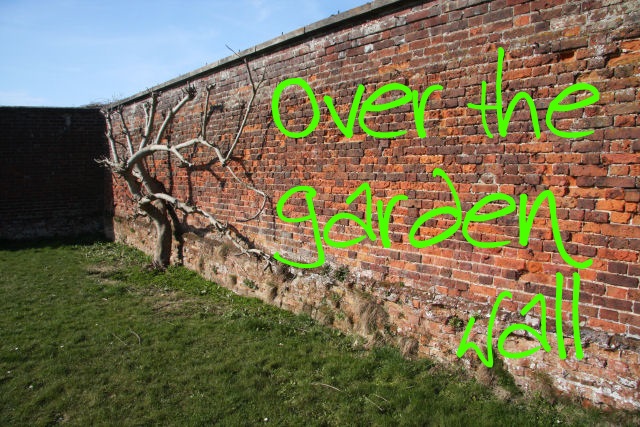
and looked for other places to work their magic.
I mean, yes, in fairness, there may be some bats
hit crazy and flat-out weird, (we've already had some of them) and even terrible albums here in time, I don't know. All I know is that this is not one of them.
Though it is damn weird.
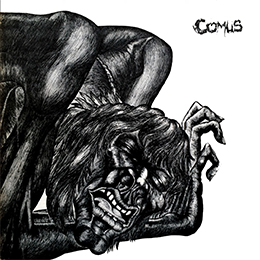 Album title: First Utterance
Artist:
Album title: First Utterance
Artist: Comus
Nationality: English
Label: Dawn
Chronology: Debut
Grade: B
The Trollheart Factor: 0
Tracklisting: Diana/ The Herald/ Drip Drip/ Song to Comus/ The Bite/ Bitten/ The Prisoner
Comments: Well I must admit when it starts it’s not what I expected. I got the impression this was dark, grinding, oppressive, almost doom prog, but if anything it reminds me a little of the lighter and more accessible side of Zeuhl, at least at first. A female vocal on a sort of bouncy rhythm gives us “Diana”, with some chanting and what sounds like a lot of violin backing. Right, I see it’s described as prog folk, and that the lyrical themes are where the darkness comes in - rape, ECT, necrophilia - well, whatever would Robert have said I wonder? Musically so far I find it very light, and I should be clear that I’m not really paying too much attention to the lyrics here so I may be missing something, but time is pressing yadda yadda.
Sounds like a theremin opening “The Herald” with some sort of spooky strings and guitar, quite ethereal really and I must say the music is really nice. Certainly changed on this one to more a sort of mixture of early Moody Blues with perhaps Renaissance or something. The guitar work here is quite stunning and really really beautiful. Almost Hackettesque in a way. This is just quite simply gorgeous, and to be honest I did not expect this at all, probably the whole point I guess, juxtaposing some of the most beautiful music with some of the most horrible lyrics, as in, on the most horrible subjects, not that they’re written badly I’m sure.
The more I hear of this the more I fall in love with it. The high, sweet female vocals just perfectly complement the music, and while I’m avoiding ruining it for myself, as I believe I would, by getting a lyric sheet, I do find it hard to believe that this is all against a backdrop of horror and pain. Talk about a dichotomy! Wonderful slide guitar kicking off “Drip Drip”, like something you might hear come out of the Mississippi Delta or the Appalachians. There is however a harsher tone to this one, for the first time, with a male vocal kind of ranting rather a lot and a bitter edge to it with the music going a little discordant. Not sure about this one now. And now… don’t know. It gets really peppy and celebratory with an almost, I don’t know, Latin, Caribbean flavour? Pretty chaotic and it must be said disturbing at the end.
Things settle down a bit then with “Song to Comus”, which unfortunately features flute (you know how I feel about flutes by now) but it has some nice acoustic guitar too and it’s more restrained than the previous track, can’t say I like the vocal though; is it put through some phased effect or something? Really odd sound. A little too Tullish for my liking now I have to say. “The Bite” seems to continue to Tull it up with that damned flute, though I hear electric guitar trying to push it out. I’m pretty sure I don’t like this from the beginning, and after a quite amazing start when I thought I would be praising this album to the skies it’s really beginning to get on my tits now. That stupid voice with the effects - assuming they are effects - is back, which is no good thing.
“Bitten” then is a short instrumental on perhaps theremin or something similar, quite spacey and weird, but still better than what has gone before, and it’s followed by “The Prisoner”, which closes the album and does bring back those female vocals which is nice, also some pretty cool cello and violin, but sorry guys, you’ve lost me now. Started out so well and ended so poorly. Nerve known an album that impressed me so much - and unexpectedly - and then nosedove so badly.
Favourite track(s): Diana, The Herald, The Prisoner
Least favourite track(s): Everything else
Personal Rating: 3.0
Legacy Rating: 4.0
Final Rating: 3.50


:format(jpeg):mode_rgb():quality(40)/discogs-images/R-1958738-1397487002-7490.jpeg.jpg)

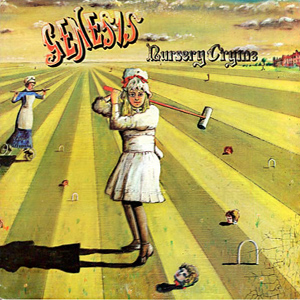

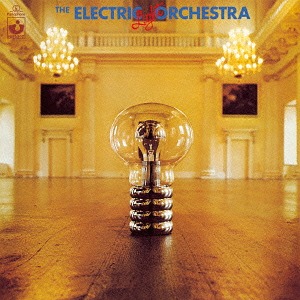

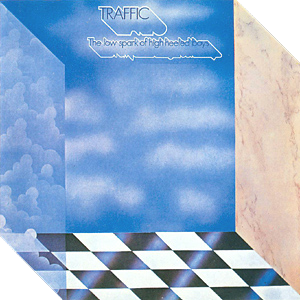






 Linear Mode
Linear Mode
